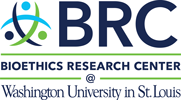Title: Banked Samples and HD Testing
Author: Dan Bustillos
Description: A woman brushes off her most recent diagnosis, Huntington disease (HD), and resists her doctor’s recommendations to tell her family about the diagnosis. By not disclosing this information to her family, they would not know that they might want to get tested for HD. Prior to diagnosis, the woman and her family provided genetic samples to a research database to investigate a genetic disease unrelated to HD. Since the database project required written consent for using samples in future research, the doctor wonders if he can run tests for HD on the stored samples that would include the materials of the woman and her family.
Keyword(s): Future Research on Stored Samples, Genetic Research, Informed Consent, Privacy/Confidentiality, Role Conflict
Case: Mrs. Hernandez is a forty-five-year old single mother of three who just learned that she has Huntington disease (HD). After displaying abnormal body-jerking for three weeks, she underwent a CT scan of her brain. Mrs. Hernandez can recall no family history of the disease, though she acknowledges that she did not know her father’s family well and they moved away from her mother’s family when she was six years old. A year ago, Mrs. Hernandez’s physician, Dr. G., referred her and her family to a genetic database research protocol to investigate genetic polymorphisms related to hyperthyroidism, which does run in the family. Mrs. Hernandez, her children, her siblings, and her siblings’ children enrolled in the study. The hyperthyroidism study is being conducted at Dr. G’s institution and he knows the principal investigator of the study well.
Mrs. Hernandez has three children ages fourteen, eighteen, and twenty-four. Her eldest daughter married last year and is six weeks into her first pregnancy. The middle child, a daughter, is also Dr. G’s patient. Dr. G. knows that the eighteen-year-old is sexually active and that Mrs. Hernandez does not know. Mrs. Hernandez has a sister and two brothers, ages thirty-four, thirty-seven, and forty respectively. The siblings are all married and have children. Mrs. Hernandez has nine nieces and nephews, ranging in age from three to twenty-two. None of the siblings, nieces, or nephews have any symptoms of HD.
Dr. G. tries to persuade Mrs. Hernandez to tell her siblings and children of her diagnosis. She waves away the suggestion saying that since there is no family history, there is no reason to alarm them. “I probably got this from the radioactive iodine I took for hyperthyroidism years ago,” she says. She plans to tell them that she is experiencing fatigue and other problems due to the radioactive iodine. The genetic counselor and Dr. G. explain the nature of the disease and try to persuade her to tell her family, but she refuses. Unless the members of Mrs. Hernandez’s family are notified of their risk for HD, they will not know that they may want to get tested. Even if they are told that they are at risk for HD, they may be unable to be tested unless Mrs. Hernandez cooperates in the testing by providing a blood sample.
HD testing often requires a blood sample from the affected family member to identify the DNA markers for the HD gene specific to that family. Dr. G. informs the PI of the hyperthyroidism study and wonders whether it would be possible to test the family members for HD by running tests on the banked samples. Dr. G. and the PI note that the consent form says that banked samples may be used for other genetic research in the future.
-
-
- Do the proposed tests for HD constitute “research” as the family understood it when signing their consent forms? What does the term mean legally? Does any of that even matter ethically?
- Have the PI and Dr. G. stepped beyond their respective roles as researcher and clinician?
- Does Mrs. Hernandez’s autonomy and right to privacy trump the interests of her family in knowing whether or not they might have fatal disease that they could unwittingly pass on to their children?
-

